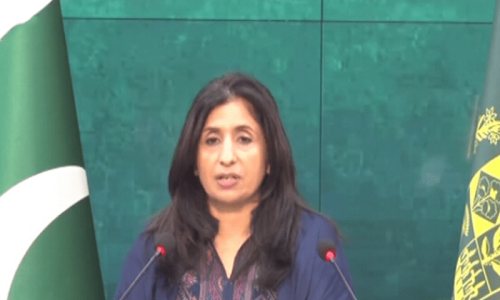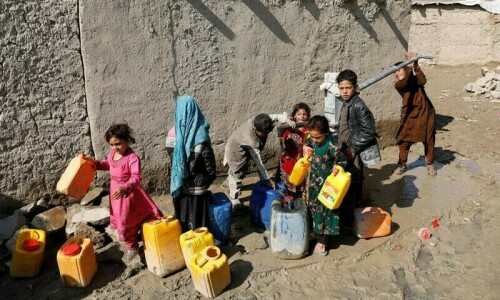WASHINGTON: Pakistan has called for urgent transboundary water cooperation and a stronger focus on the water-climate-environment nexus at the upcoming 2026 UN Water Conference, warning that climate change and population pressures are pushing the country towards water scarcity.
Speaking at the conference’s organisational session in New York, Ambassador Asim Iftikhar Ahmad stressed the need to accelerate global efforts to ensure clean water and sanitation for all — a challenge deeply personal for countries like Pakistan, which could become water-scarce by 2035.
In 2021, Pakistan’s per capita water availability dropped to just 1,017 cubic metres per year, a dangerously low figure for a country of 240 million people. Much of Pakistan’s water comes from the Indus River Basin, heavily dependent on snowmelt and rainfall — both of which are becoming increasingly erratic due to climate change.
Mr Ahmad highlighted the ‘Living Indus’ and ‘Recharge Pakistan’ programmes as national efforts to restore ecosystems, improve water quality, build flood resilience, and conserve biodiversity — offering solutions other developing countries could learn from.
Pakistan’s proposal at the UN calls for water-sharing nations to work together and adopt integrated approaches that connect water management, climate action, and environmental sustainability.
The ambassador warned that “time is running out” and stressed that implementation, not just promises, remains the biggest challenge.
Pakistan has long warned the UN about climate change’s brutal impact on its water security. Between 1998 and 2004, the country suffered a crippling drought, affecting over 3 million people. Then in 2022, record monsoon rains triggered catastrophic floods, submerging one-third of the country, killing over 1,700 people, displacing millions, and inflicting more than $30 billion in economic losses.
Pakistan’s latest push at the UN aims to ensure that such disasters become global wake-up calls, urging nations to cooperate across borders before climate-driven water crises spiral further out of control.
Published in Dawn, March 5th, 2025















































